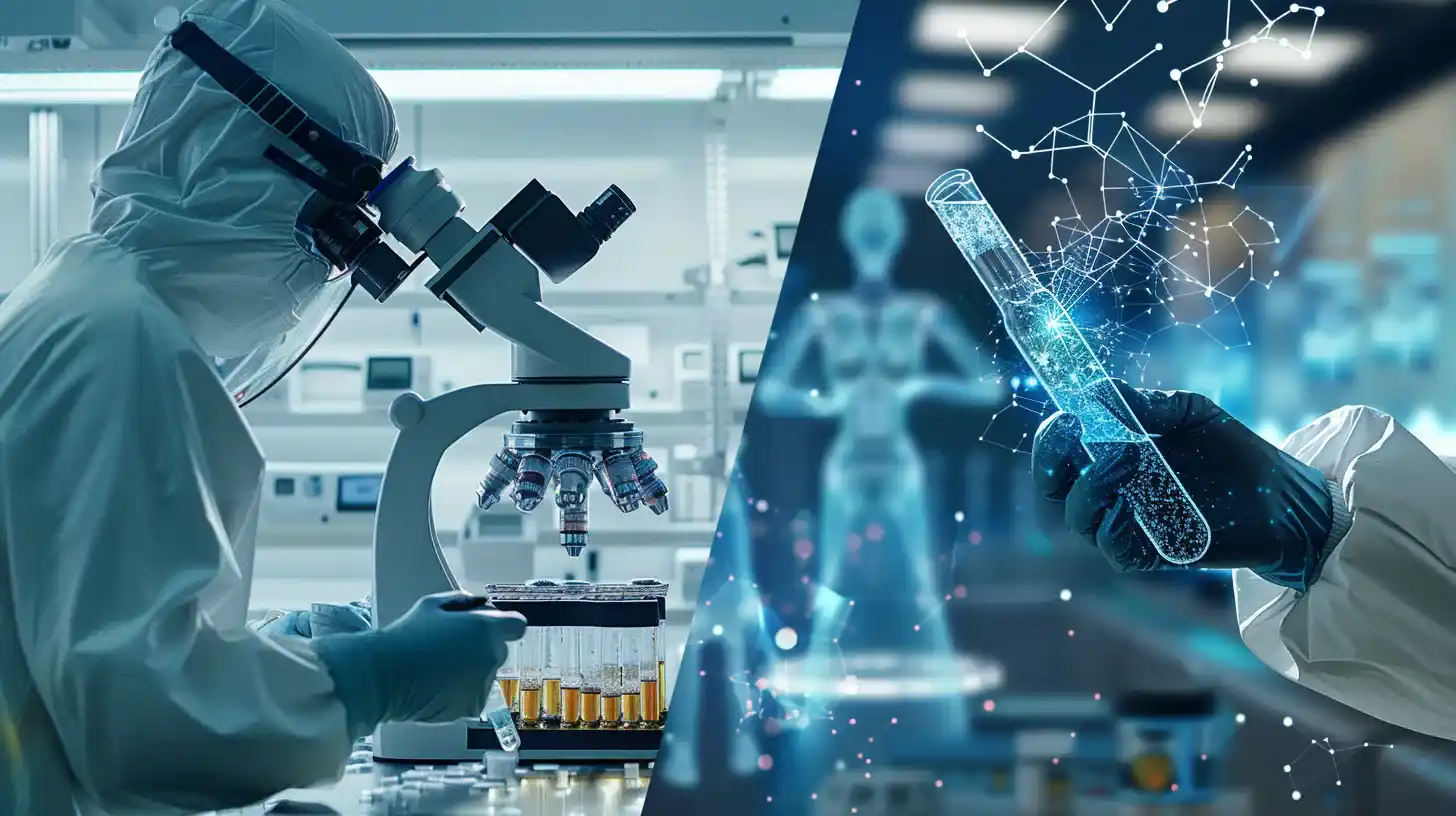Table of Contents
AI Revolutionizes Drug Discovery: Imagine a symphony of miniature robots, a ballet of swirling fluids, and the relentless hum of high-tech machinery. This isn’t science fiction; it’s the daily reality at Terray Therapeutics, a California-based company pioneering a revolutionary approach to AI Revolutionizes Drug Discovery.
The Rise of the Machines
Terray’s labs are a far cry from the traditional image of pharmaceutical research. Gone are the days of hand-mixing concoctions and poring over Excel sheets. Today, the heavy lifting is done by an army of miniaturized robots, meticulously shuttling samples and conducting experiments at a breakneck pace.
But the true magic lies at the nanoscale. Proteins dance with chemical molecules within custom-designed silicon chips, each interaction meticulously recorded. This data deluge – terabytes daily – fuels the heart of Terray’s operation: artificial intelligence.
AI Revolutionizes Drug Discovery: The New Alchemist
Generative AI, a powerful form of machine learning, is Terray’s secret weapon. Trained on vast datasets of molecular information, protein structures, and biochemical interactions, this AI acts as a virtual alchemist, sifting through possibilities and suggesting promising drug candidates.

Think of it as a key master: the AI searches for the perfect chemical “key” to unlock the desired protein “lock” and disrupt disease processes. Unlike chatbots prone to fantastical “hallucinations,” Terray’s AI thrives on precise scientific data, ensuring its predictions remain grounded in reality.
From Data to Drugs: AI Revolutionizes Drug Discovery
The AI doesn’t just propose solutions; it actively participates in the creation process. Once a potential drug candidate is identified, the AI translates its digital design into a physical molecule in a high-speed automated lab. The interaction with the target protein is then tested and the results are fed back into the AI loop. This continuous cycle of experimentation and learning accelerates the process dramatically.
The Long Road to a Cure
While the future looks promising, it’s important to temper expectations. Though some AI-developed drugs are in clinical trials, the road to FDA approval remains long and arduous. Drug development is inherently complex, influenced by factors beyond AI’s control.
However, companies like Terray offer a beacon of hope. By harnessing the power of automation, big data, and machine learning, they are fundamentally changing the way we discover new medications. This shift promises faster development times, lower costs, and ultimately, better drugs for patients in dire need.
Two Paths, One Goal
The AI Revolutionizes Drug Discovery isn’t a one-horse race. While Terray relies on its high-tech labs to generate mountains of data, other companies like Isomorphic Labs believe in the power of pure software prowess. Their focus on advanced algorithms and computational methods demonstrates the diversity of approaches within this burgeoning field.

A Legacy in the Making
Terray’s story is one of scientific passion and entrepreneurial vision. Founded by Dr. Jacob Berlin, a chemist with a long history of pushing boundaries in nanotechnology and chemistry, Terray is a testament to the transformative power of collaboration between academia and cutting-edge technology.
Their focus on small-molecule drugs – those readily available in pill form – reflects a commitment to patient convenience and affordability. This was a far cry from the early days of Dr. Berlin’s research when data resided on clunky Excel sheets and automation was a distant dream.
The Future of Medicine
The innovations pioneered by Terray and its peers have the potential to reshape the future of medicine. While the ultimate test lies in clinical success rates and improved patient outcomes, one thing is certain: AI is no longer science fiction. It’s a powerful tool with the potential to unlock a new era of faster, more effective medications for a healthier tomorrow.